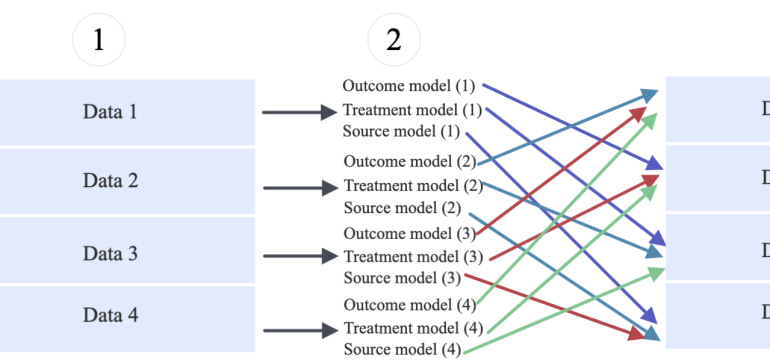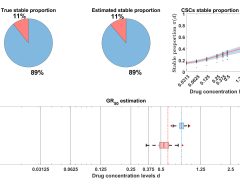Authors: Guanbo Wang, Sean McGrath, Yi Lian, Issa Dahabreh
Published on: February 06, 2024
Impact Score: 8.27
Arxiv code: Arxiv:2402.04341
Summary
- What is new: The introduction of the CausalMetaR R package, providing methods for estimating causal effects using multi-source data with a focus on producing causally interpretable estimates for specific target populations.
- Why this is important: Traditional meta-analytic methods fail to produce causally interpretable estimates for well-defined target populations.
- What the research proposes: CausalMetaR offers efficient and robust methods for estimating average and subgroup treatment effects in target populations, using doubly robust and non-parametric estimators and incorporating data-adaptive methods.
- Results: The paper demonstrates the use of CausalMetaR through an example, showcasing its capability to produce efficient and robust estimates of causal effects.
Technical Details
Technological frameworks used: CausalMetaR R package
Models used: Doubly robust and non-parametric efficient estimators, data-adaptive methods (e.g., machine learning), cross-fitting techniques
Data used: Multi-source data
Potential Impact
Healthcare, insurance, and any sector relying on causal inference from multi-source data for decision-making could benefit, while traditional analytics service providers might face disruption.
Want to implement this idea in a business?
We have generated a startup concept here: CausaLink.



Leave a Reply